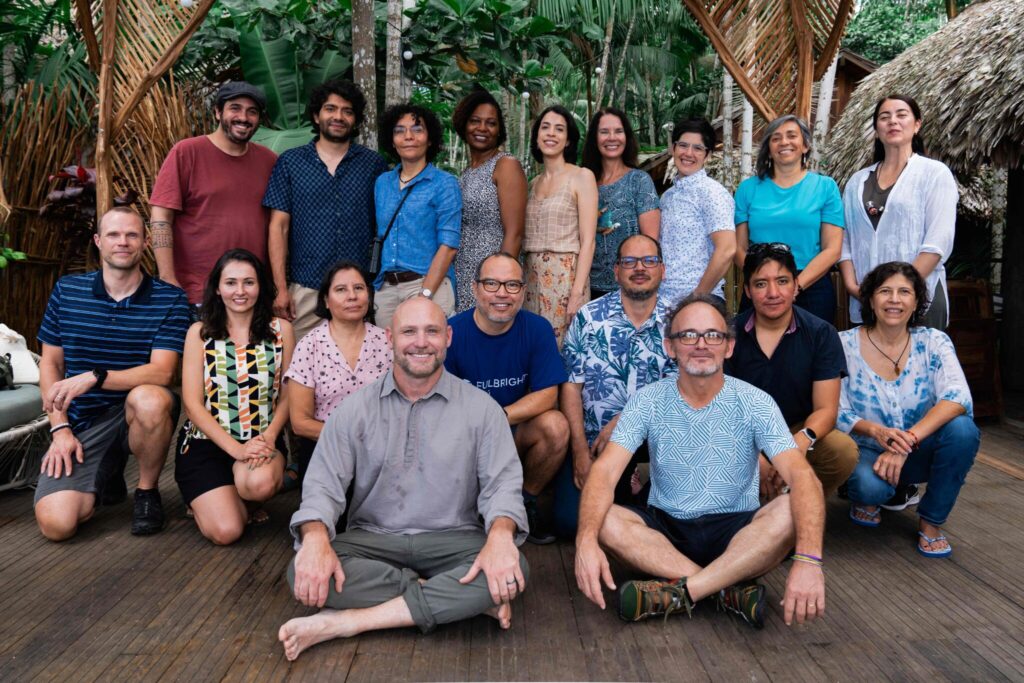
Fulbright Amazonia, an international, multi-disciplinary collaboration of scholars investigating topics related to the Amazon Basin, kicked off its inaugural program with a meeting in Belém, Brazil from June 18 to 22, 2023. Known as the gateway to the Amazon, Belém was a fitting venue for the scholars to begin exploring the opportunities and challenges presented by their work as they contribute to the goal of a thriving Amazon Basin.
Sixteen scholars from Brazil, Bolivia, Colombia, Ecuador, Peru, Suriname, Venezuela and the United States convened to meet with prominent Amazonia experts and set the research agenda and initial goals for the program. The team is guided by co-lead scholars Dr. Carlos Valério Aguiar Gomes, from the Federal University of Pará in Brazil, and Dr. Jeffrey Hoelle, from the University of California, Santa Barbara in the United States.
Video courtesy of Fulbright Commission Brazil
Over the next 18 months, these scholars will conduct individual research projects in their areas of expertise, and collaborate to advance interdisciplinary research focused on the lives and economies of those living and working in the Amazon region. They will meet again in Leticia, Colombia in April 2024, and gather in Washington, D.C. in December 2024 to present actionable policies that may directly improve the quality of life of communities throughout the Amazon Basin.
Fulbright Amazonia is a program of the U.S. Department of State, Bureau of Educational and Cultural Affairs (ECA), with funding provided by the U.S. Government and the Fulbright Commission in Brazil, with the additional support of binational Fulbright Commissions and U.S. Embassies in the Amazon Region.


Science Informed by Local Communities
Opening the meeting, Luiz Loureiro, Executive Director of the Fulbright Commission in Brazil and Eugenia Verdaguer, Branch Chief for Western Hemisphere Fulbright at the U.S. Department of State emphasized the need to work across borders to find practical solutions to shared challenges. According to Loureiro, “You can’t propose any solution for the Amazon that permeates nine countries without the people from those countries working together. It is essential that all work developed is anchored in this perspective of international cooperation and diplomacy.”
Dr. Mercedes Bustamante, president of CAPES in Brazil’s Ministry of Education emphasized the need to bring an interdisciplinary perspective to the Pan-Amazon region, and the rector of the Federal University of Pará (UFPA), Dr. Emmanuel Tourinho, spoke about the importance of cooperation among researchers. “This is a program that stimulates cooperation in research,” he said. “It’s a step forward in this collaborative effort to scientifically get to know the region and prepare ourselves to deal more efficiently with the great challenges we have.”
Dr. Eloy Terena, Executive Secretary of Brazil’s Ministry of Indigenous Peoples, welcomed the scholars’ efforts. He expressed the ministry’s interest in the production of knowledge that takes the experiences of these communities into account, and highlighted the critical importance of access to fellowships for indigenous community members to ensure their inclusion in decision making.
The event concluded with a networking reception and viewing of Brazilian artist Roberta Carvalho’s Symbiosis, a digital piece that integrates human faces with the trees, symbolizing the interconnections among living organisms.
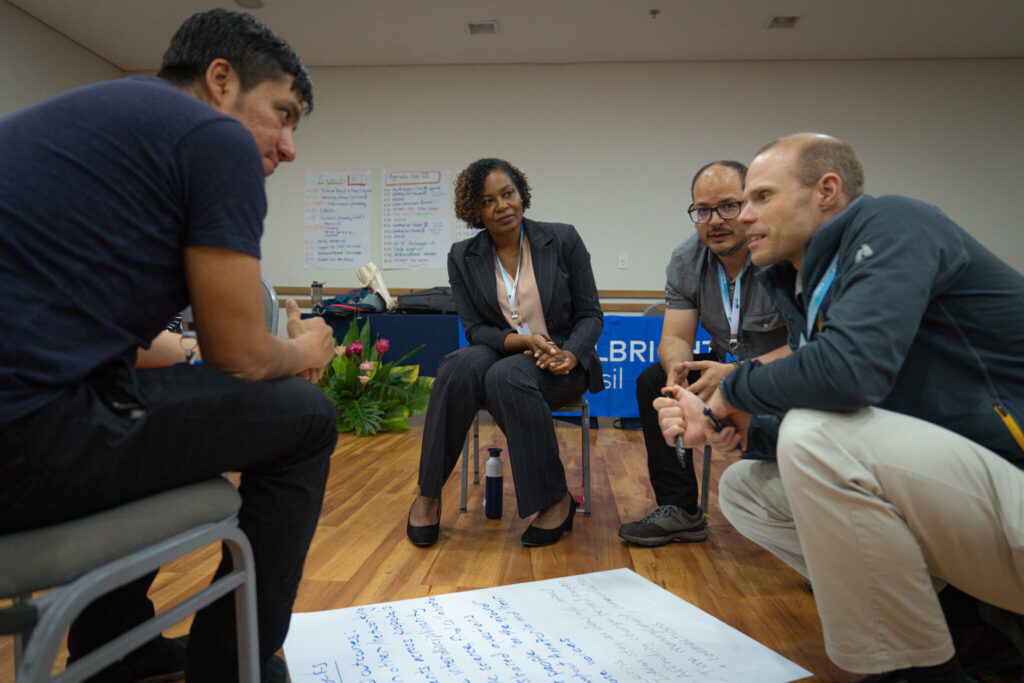
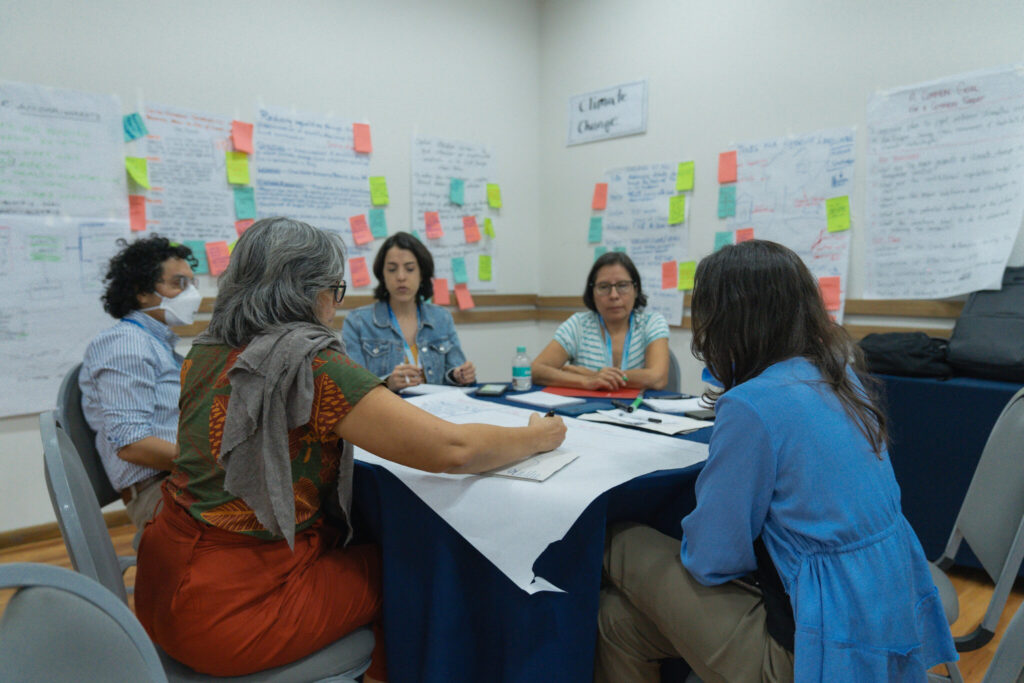

Establishing Research Priorities
Fulbright Amazonia builds on existing academic and practitioner networks and collaboration among U.S. and Amazonian universities and research centers to promote innovative approaches that preserve Amazonian social and ecological health and community traditions. Each Scholar will conduct exchange visits to further their individual research projects, and they will also come together in working groups.
During the four days of the opening seminar, the Fulbright Amazonia scholars outlined their collaborative research plans and identified policy priorities. At the close of the week, each group presented their research goals and proposed activities for consideration and comment by the rest of their peers. They also solidified plans for their research exchange visits to various Amazon countries and to the United States, and worked with one another and the co-lead scholars to identify new professional connections.
Video courtesy of Fulbright Commission Brazil
The Gateway to the Amazon
In Belém, the scholars met with local leaders and researchers to learn about their work and to exchange ideas and experiences.
The Pan-Amazon Conference on Bioeconomy and the International Forum of Bioeconomy and Indigenous Villages took place in Belém at the same time as the Fulbright Amazonia meeting. The group also benefitted from exchanges with key scientists of the Amazon, including:

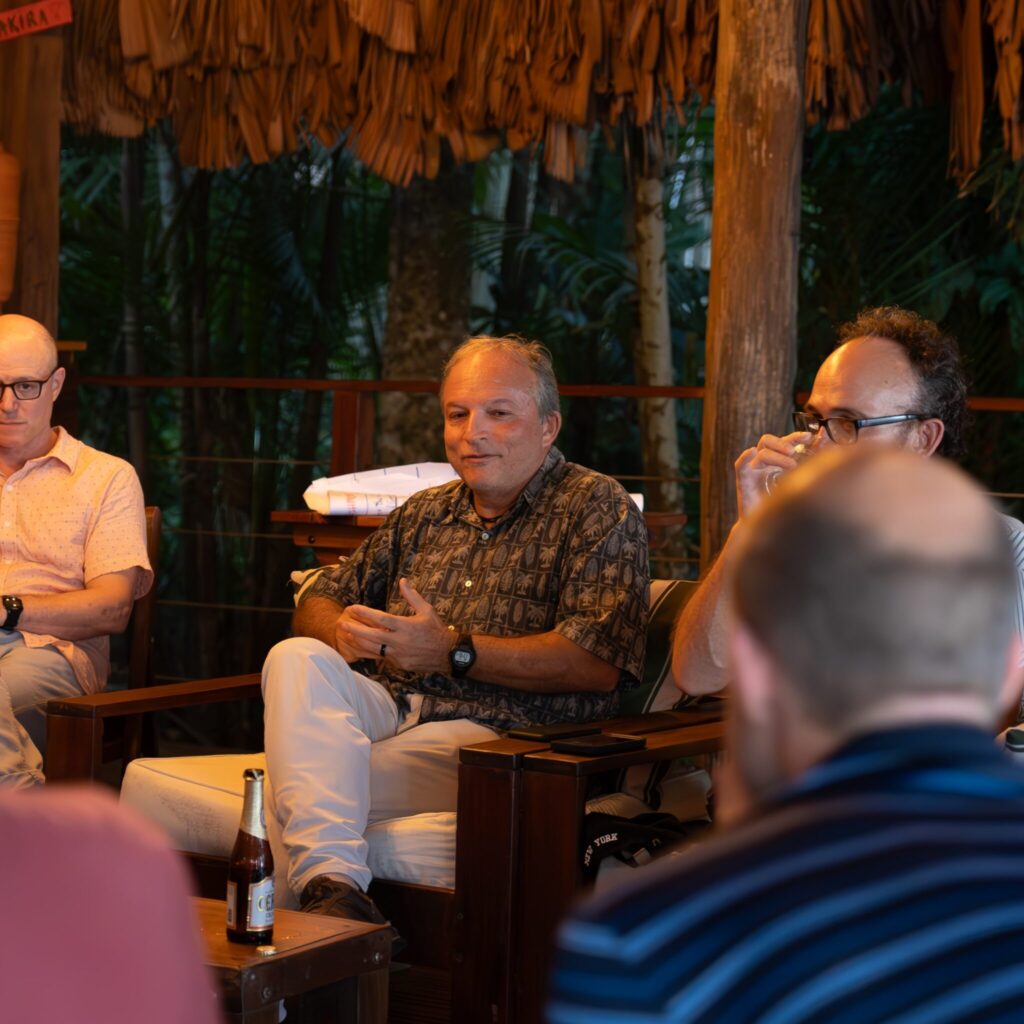
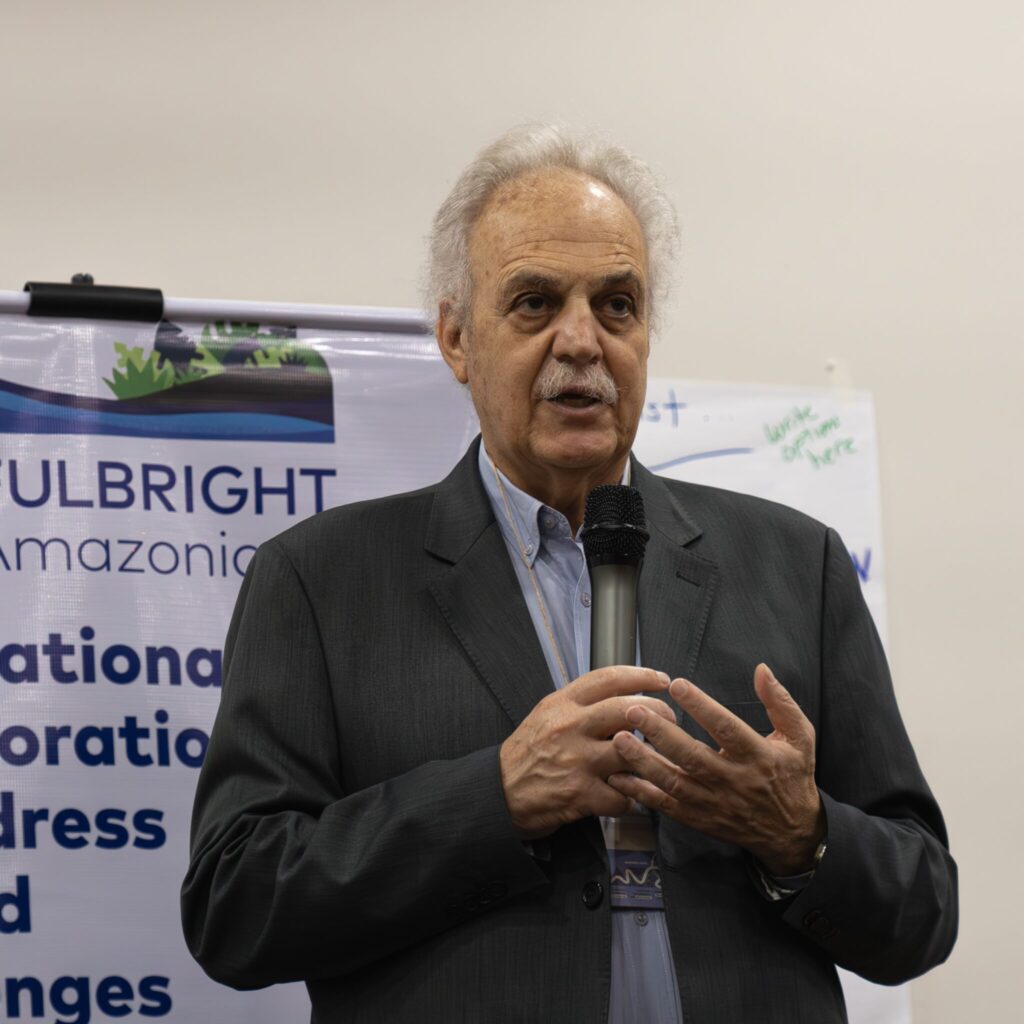
- Dr. Ima Célia Guimarães Vieira, a Senior Researcher at Museu Paraense Emilio Goeldi, whose research focuses on the resilience and restoration of the Amazon forest, and combating deforestation and fires;
- Dr. Roberto Porro, a researcher at Embrapa Eastern Amazon, where he coordinates studies on rural anthropology with an emphasis on peasantry, land use and the environment in the Amazon region, economic stratification, and community forest management;
- Dr. Carlos A. Nobre, Nobel Laureate, member of the Brazilian Academy of Science, and founding member of the World Resources Institute (WRI). Nobre is presently a senior researcher with the Institute for Advanced Studies at the University of São Paulo. He is also the creator of the Amazon Third Way/Amazonia 4.0 Initiative that seeks a new development paradigm based on a biodiversity-driven bioeconomy utilizing modern technologies of the Fourth Industrial Revolution.
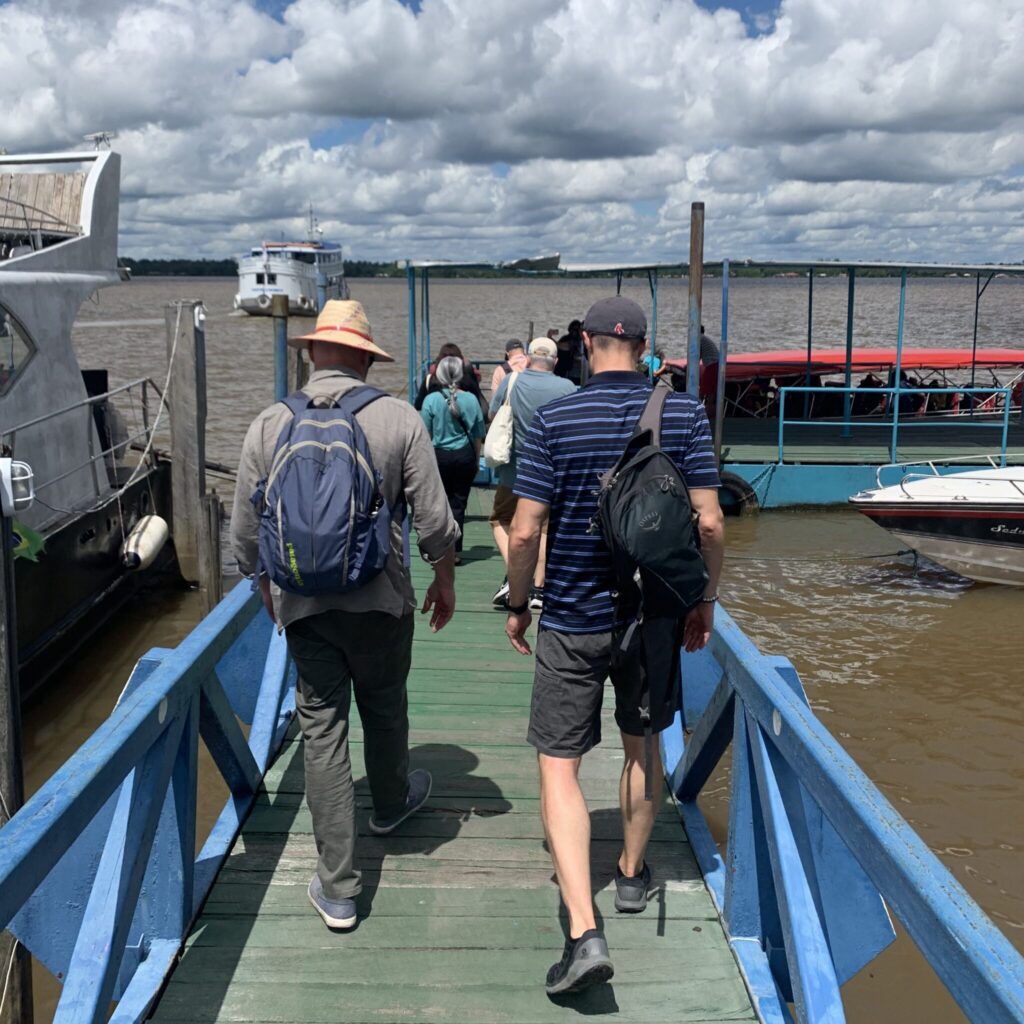

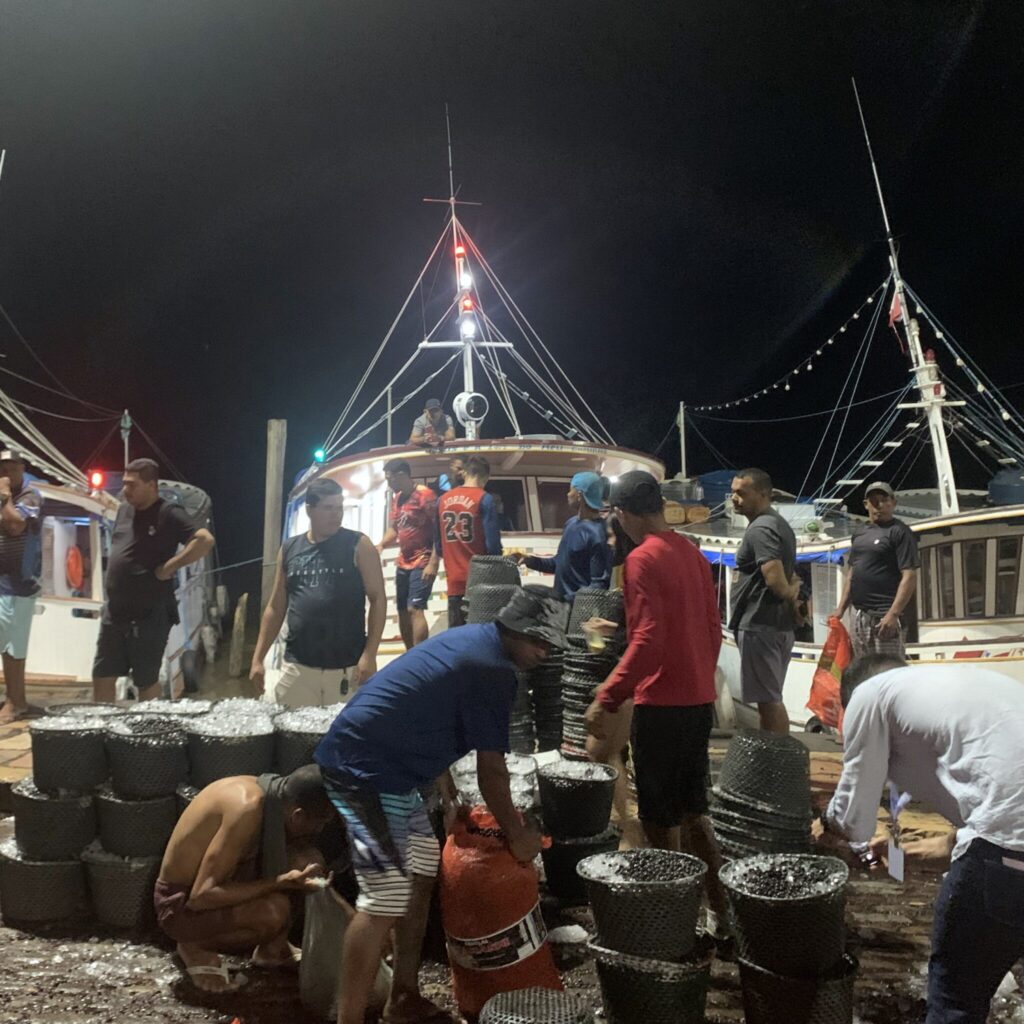
The scholars are also planning to provide content for the Amazon Cooperation Treaty Organization (ACTO) summit that will take place in Belém in August 2023. At the summit, Brazilian President Luiz Inacio Lula da Silva intends to establish the region’s plans for the Amazon.
Getting into the Community
Fulbright Amazonia Scholars also had the opportunity to observe the culture and economy of the surrounding communities in Brazil. The group visited an environmental preservation area located on the banks of the Guamá River, as well as Ver-o-Peso, an open air market on Guajará Bay where fruit, animals, medicinal plants, and other goods are brought in from surrounding Amazonian communities and traded.
Each night boats unload fresh fish, and transfer recently harvested açaí, a key Amazon crop, through the market. 95% of Brazil’s açaí crop is grown in the state of Pará, of which Belém is the capital, making it an ideal location to explore and better understand the legacies of extractive economy that have impacted the Amazon.